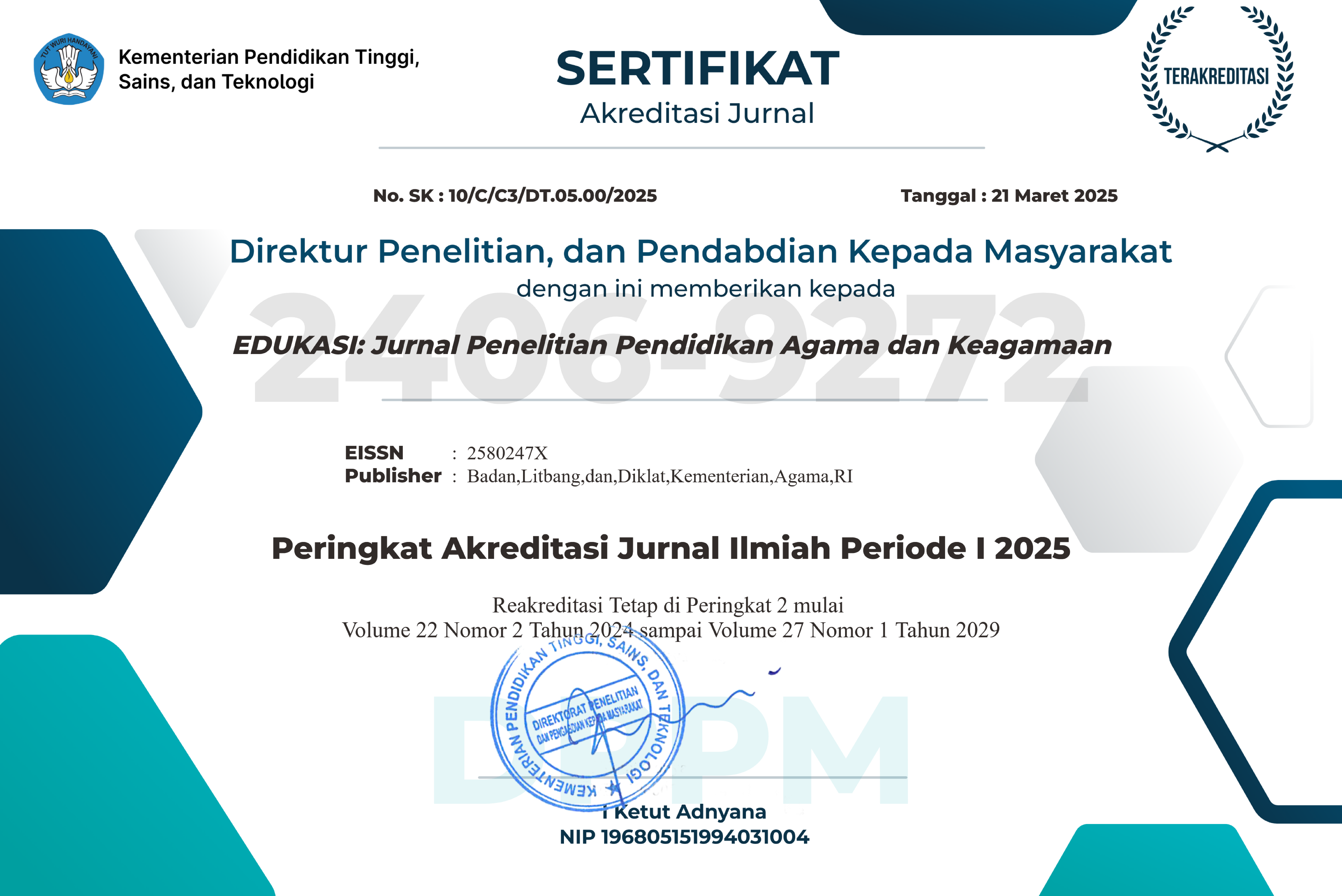Pengkaryaan Santri Anak Usia Dini di Pesantren Tahfidz Al-Ishlah Pati Dalam Perspektif Undang-Undang Perlindungan Anak
DOI:
https://doi.org/10.32729/edukasi.v20i1.1017Abstract
Islamic boarding schools as institutions that cadre scientists (ulama) to understand Islamic science for the provision of society. However, socializing also requires expertise as a source of livelihood, so students are also equipped with skills with real daily practice (entrepreneurship). The problem in this study, namely how to divide activities between study time and work at the Tahfidz al-Islah Islamic Boarding School, and where is the point of vulnerability to violations of the Child Protection Act. The purpose of this study was to describe learning at the Tahfidz Al-Ishlah Islamic Boarding School in Kadilangu Village, Trangkil District, Pati Regency, Central Java. Data was obtained in 2020 with interviews, observations, and literature which were analyzed descriptively qualitatively. The results of the study found that the pesantren for prospective al-Quran memorizers provided knowledge about fiqh, interpretation of the Koran, and entrepreneurship facilitated by Islamic boarding schools. Compensation obtained by students in addition to knowledge is free of charge for education, boarding, and meals. Entrepreneurship education is taught from an early age as an effort to cultivate the character of an entrepreneurial spirit and train students' independence. In its application there are no violations of the Child Protection Act.
Downloads
Downloads
Published
Issue
Section
License
Copyright (c) 2022 Moh Rosyid

This work is licensed under a Creative Commons Attribution-ShareAlike 4.0 International License.









